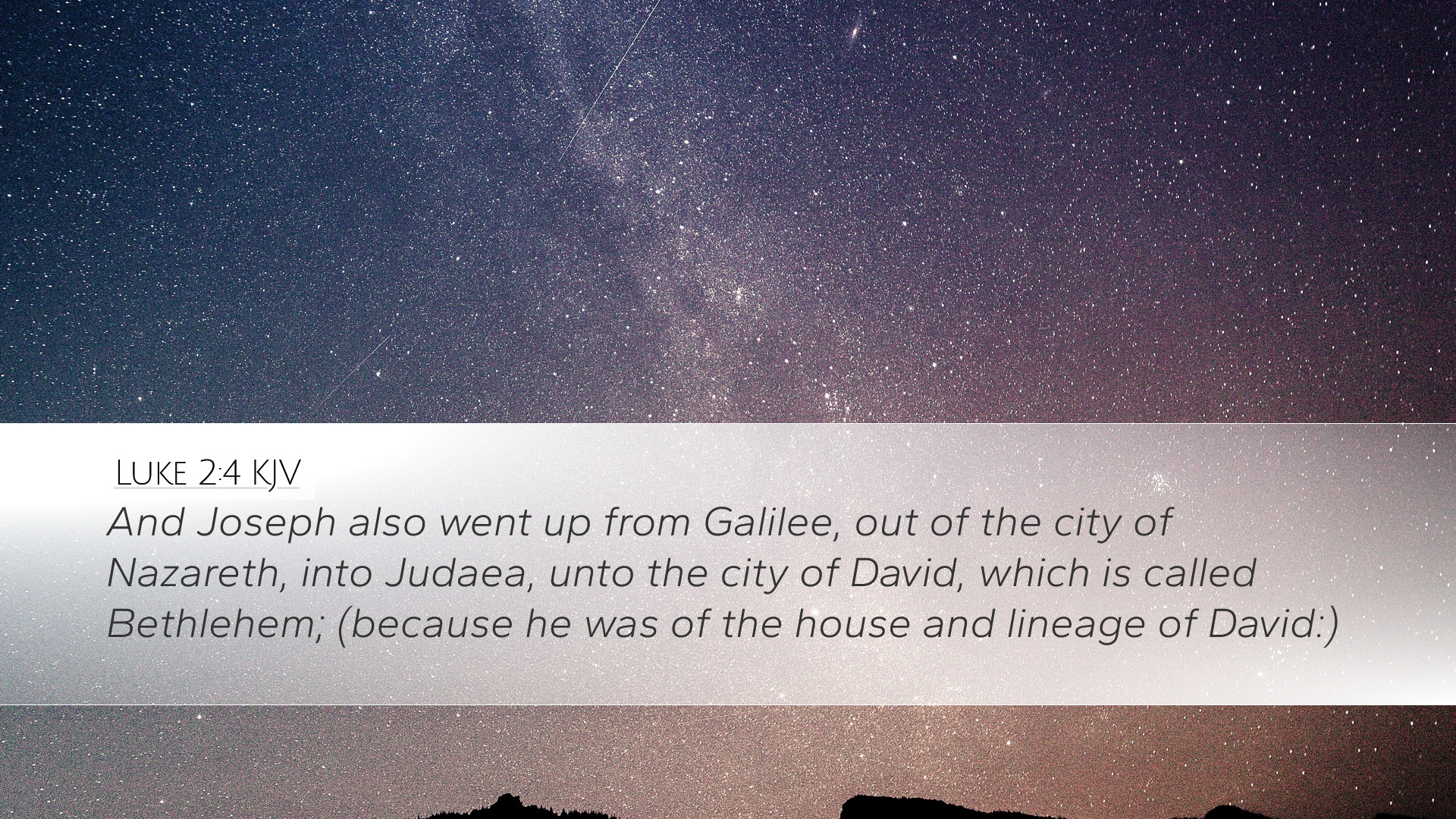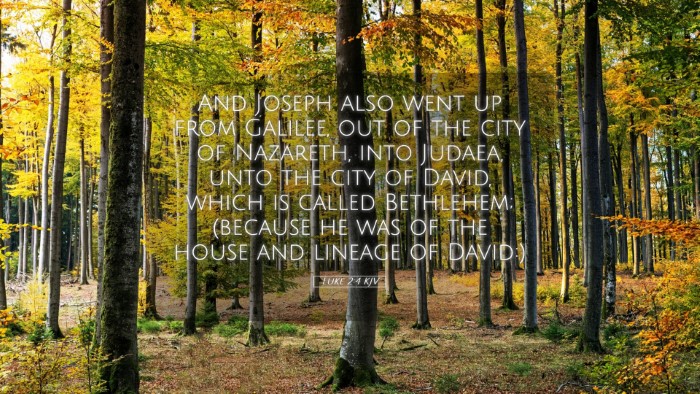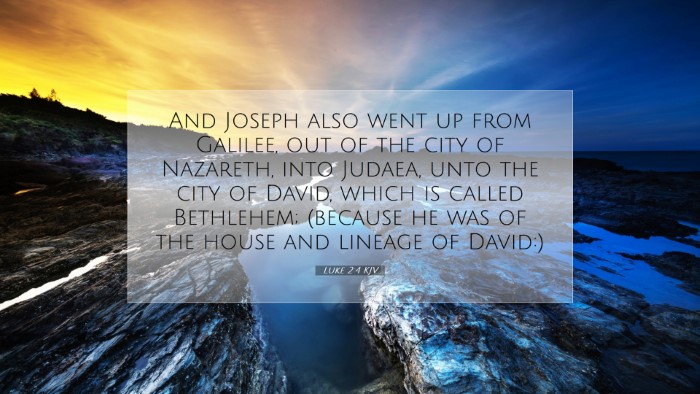Commentary on Luke 2:4
Verse: "And Joseph also went up from Galilee, out of the city of Nazareth, into Judea, unto the city of David, which is called Bethlehem; (because he was of the house and lineage of David):"
Introduction
Luke 2:4 serves as a pivotal verse in the narrative of Christ's birth, marking Joseph's journey from Nazareth to Bethlehem. This rich verse is not merely a geographical statement; it resonates deeply with theological implications, historical context, and prophetic fulfillment.
Context and Historical Background
In the context of the Roman Empire's taxation and census policies, Joseph's travel to Bethlehem was both compelled by legislation and deeply rooted in his ancestry. His journey highlights the sovereignty of God, orchestrating events to fulfill Old Testament prophecies regarding the Messiah's birth.
Matthew Henry's Perspective
Matthew Henry emphasizes the significance of Joseph's lineage. He notes that the mention of "the house and lineage of David" underscores God’s covenant with David and the prophetic whispers of the Old Testament concerning the Messiah. Henry points out that Joseph’s obedience in returning to Bethlehem exemplifies the virtue of fulfilling civic responsibilities.
Albert Barnes' Insight
Albert Barnes elaborates on the phrase "went up from Galilee," indicating not only the physical ascent to Jerusalem but also a spiritual ascent, as Bethlehem had profound significance in Israel’s history. Barnes also argues that the specific location of Bethlehem reflects God’s providential control over history, exemplifying that man's plans (here, Caesar's decree) are subservient to God's redemptive purposes.
Adam Clarke's Comments
Adam Clarke provides a detailed examination of the geographical context. He notes the natural terrain that Joseph would have traversed and the potential hardships faced during the journey. Clarke also highlights the prophecy from Micah 5:2, connecting the importance of Bethlehem as the preordained birthplace of the Savior, which enriches the understanding of this verse. Furthermore, Clarke discusses the socio-economic conditions of that era, illustrating how Joseph and Mary, belonging to humble origins, were divinely chosen for this monumental task.
Theological Implications
This verse conveys deep theological truths that are significant for pastoral ministry, academic study, and personal application. Each element of this journey carries weight in understanding the incarnation of Christ.
The Fulfillment of Prophecy
Luke 2:4 illustrates the fulfillment of multiple prophetic declarations regarding the Messiah's origin. The foretelling from Micah 5:2 explicitly states that the ruler of Israel would come from Bethlehem, aligning the historical context of Joseph's journey with divine prophecy.
God’s Sovereignty
The narrative reflects God's absolute sovereignty over human affairs. Although a worldly decree prompted Joseph's travel, it served a divine purpose. This interplay invites theologians to reflect on how God orchestrates events in our lives, often behind the veil of human understanding.
Human Obedience and Divine Purpose
Joseph's compliance with the decree serves as a model of obedient faith. His willingness to make such a strenuous journey underlines the human role in God's redemptive plan. For pastors and scholars, this serves as a reminder that active obedience often precedes divine revelation.
Application for Pastors and Theologians
As pastoral leaders and scholars meditate on Luke 2:4, several applications emerge:
- Emphasizing Obedience: Encourage congregants to follow God's leading, even when it leads to discomfort or challenges, as exemplified by Joseph.
- Understanding Scripture's Prophecy: Highlight the importance of prophecy in teaching and preaching, connecting the Old and New Testaments to illustrate the unity of Scripture.
- Celebrating God’s Sovereignty: In a world filled with uncertainty, remind believers of God’s overarching plan and sovereignty in history, especially during the Advent season.
- Sharing the Historical Context: Educating congregants about the historical and sociopolitical context of biblical events enriches their understanding of Scripture and deepens their faith.
Conclusion
Luke 2:4 invites readers into a deeper understanding of the incarnation narrative by tracing the humbling yet significant journey of Joseph. The insights drawn from public domain commentaries such as those by Matthew Henry, Albert Barnes, and Adam Clarke provide a robust framework for exploring the theological, historical, and practical implications of this verse. In doing so, it inspires contemporary believers to recognize God's hand in their lives and calls them to faithful obedience in His divine purposes.


